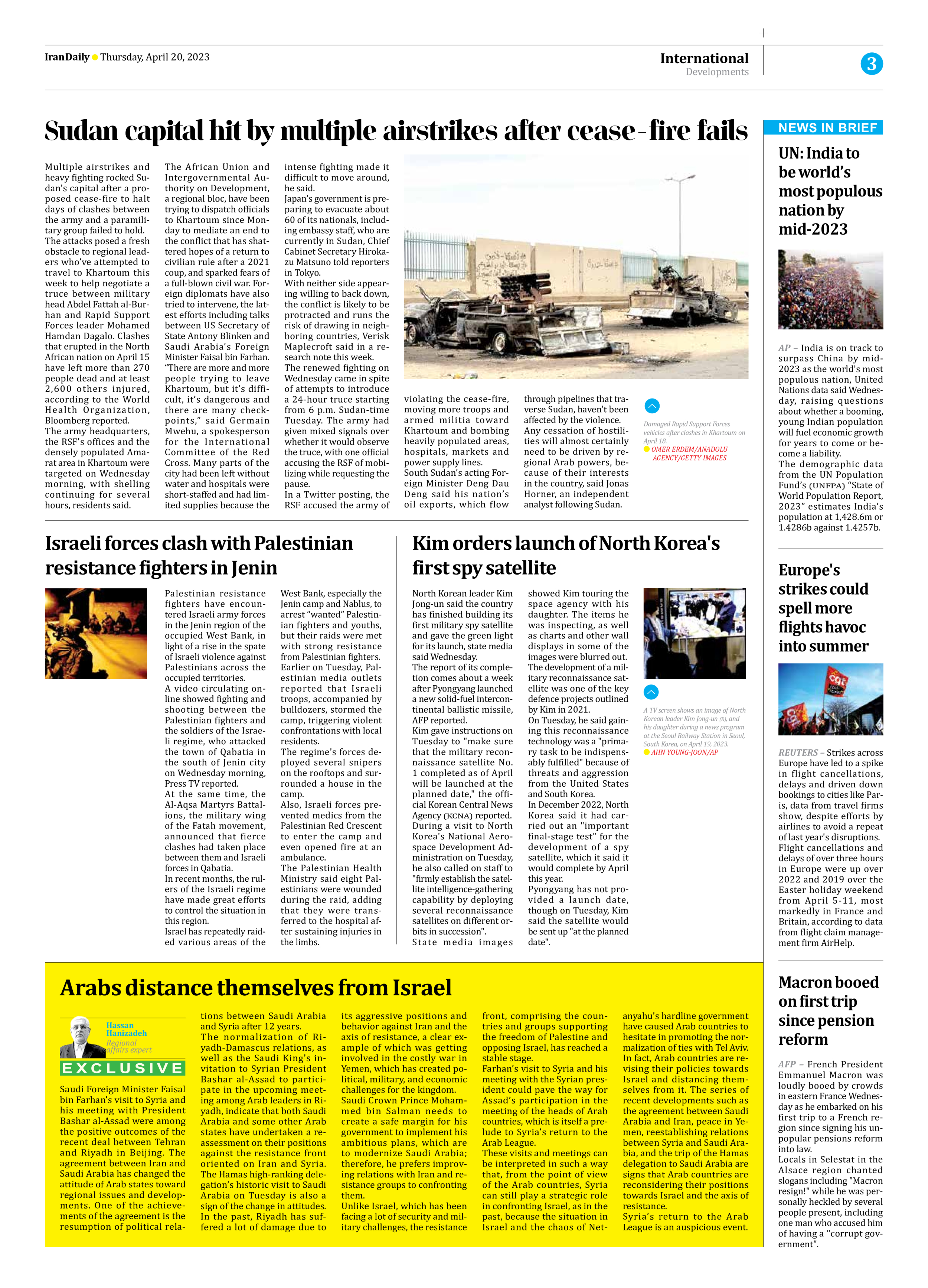
Sudan capital hit by multiple airstrikes after cease-fire fails
Multiple airstrikes and heavy fighting rocked Sudan’s capital after a proposed cease-fire to halt days of clashes between the army and a paramilitary group failed to hold.
The attacks posed a fresh obstacle to regional leaders who’ve attempted to travel to Khartoum this week to help negotiate a truce between military head Abdel Fattah al-Burhan and Rapid Support Forces leader Mohamed Hamdan Dagalo. Clashes that erupted in the North African nation on April 15 have left more than 270 people dead and at least 2,600 others injured, according to the World Health Organization, Bloomberg reported.
The army headquarters, the RSF’s offices and the densely populated Amarat area in Khartoum were targeted on Wednesday morning, with shelling continuing for several hours, residents said.
The African Union and Intergovernmental Authority on Development, a regional bloc, have been trying to dispatch officials to Khartoum since Monday to mediate an end to the conflict that has shattered hopes of a return to civilian rule after a 2021 coup, and sparked fears of a full-blown civil war. Foreign diplomats have also tried to intervene, the latest efforts including talks between US Secretary of State Antony Blinken and Saudi Arabia’s Foreign Minister Faisal bin Farhan.
“There are more and more people trying to leave Khartoum, but it’s difficult, it’s dangerous and there are many checkpoints,” said Germain Mwehu, a spokesperson for the International Committee of the Red Cross. Many parts of the city had been left without water and hospitals were short-staffed and had limited supplies because the intense fighting made it difficult to move around, he said.
Japan’s government is preparing to evacuate about 60 of its nationals, including embassy staff, who are currently in Sudan, Chief Cabinet Secretary Hirokazu Matsuno told reporters in Tokyo.
With neither side appearing willing to back down, the conflict is likely to be protracted and runs the risk of drawing in neighboring countries, Verisk Maplecroft said in a research note this week.
The renewed fighting on Wednesday came in spite of attempts to introduce a 24-hour truce starting from 6 p.m. Sudan-time Tuesday. The army had given mixed signals over whether it would observe the truce, with one official accusing the RSF of mobilizing while requesting the pause.
In a Twitter posting, the RSF accused the army of violating the cease-fire, moving more troops and armed militia toward Khartoum and bombing heavily populated areas, hospitals, markets and power supply lines.
South Sudan’s acting Foreign Minister Deng Dau Deng said his nation’s oil exports, which flow through pipelines that traverse Sudan, haven’t been affected by the violence.
Any cessation of hostilities will almost certainly need to be driven by regional Arab powers, because of their interests in the country, said Jonas Horner, an independent analyst following Sudan.







